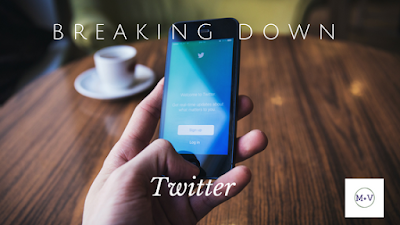Knowing Your Value
I recently had two experiences that, for me, exemplified the two situations in which knowing your value as a professional can save you a lot of time, effort, and even heartache.
The first situation is very much positive: I recently pitched for a potential new client, and it went very well. In our first meeting, I demonstrated that I understood his personality as a service provider, his struggle to communicate that personality across many platforms and channels, and the rate of growth that he could reasonably maintain if we embarked on a social campaign. I walked away from the meeting feeling that I had nailed the pitch, and I followed up the next day with a contract proposal that incorporated the talking points we discussed.
It occurred to me that it's about time I get a more iron-clad contract document together for onboarding new clients (something that covers the issues of non-performance, dissatisfaction with the product, and other legal jargon that I haven't yet needed as a freelancer). I began to research this and to plan for sending one to this prospect, as well as some example Facebook posts and an example content calendar for his review within a week of our meeting.
Before I sent my email, the prospect called me to let me know that he was really excited about my work, and wanted to move forward with me, but that he was going to have to rework some other pieces in his budget before he could take me on. While this isn't exactly a sale, I am satisfied with this result because I know he's going to come back to me as soon as he is ready. As a rule, I am not very pushy, and I don't think I should have to be.
As this call demonstrates, even without a sample personalized content plan and further examples of my writing, I had effectively communicated my value to this prospect. While I definitely should finish up my legal document, I am not in a rush to complete it to bring this client on. By doing the research into his business, getting to know him as a prospect on a personal - not just a professional - level, I was able to communicate my worth without going to great lengths to 'prove' it. By listening and truly aiming to understand, I built trust during a coffee meeting that will, undoubtedly, be worth much more over the length of my relationship with this client.
I call that a reputation win.
On the other hand: I have a colleague who I have known since our time at business school. In hindsight, I can see that this relationship was not destined to end well, but I didn't have hindsight when I became friends with him.
After we graduated, I joined the marketing team of a start-up company he formed with some other classmates. It's always exciting to be a part of a start-up because the energy and environment are very stimulating. However, as our meetings and theorizing continued, it became obvious to me that my advice was not just going unconsidered, it was being actively rejected by the other major partner. It also became clear that the origin story for the product was borne of little more than the desire to make expensive-looking products cheaply and sell them for an astronomical margin.
Rather than wait around for the $600 consulting fee I was owed, I left the operation immediately, on very poor terms with my college friend.
Flash forward about a year, and this same friend reaches out to me about doing some marketing for a business he has started in the construction field. I did some research before giving advice, and determined that this company did actually exist, and was not nearly so shady as the previous one. The other partner was not involved, and things appeared a little better, so I talked with my friend and worked out a pitch.
After several weeks with no answer from my friend, I let the idea go. In reviewing my original pitch document, I decided that I had given too much of the milk without selling the cow, and it seemed likely he had taken my (rather exhaustive 9-page) pitch and was using it as strategy for his marketing efforts.
He has subsequently called to ask for advice, and I have stopped giving it. He called recently, and left me a voicemail again soliciting me for advice.
I highly doubt he is interested in paying me now, and the advice I have to give is worth infinitely more than the coffee he would buy to get me talking. That is, assuming he would buy the coffee.
There comes a time in your career when respecting your own boundaries means not returning calls that you know will go nowhere. I am very happily at a place in my business where every hour I choose to spend working is an hour that I make money. Donating my time to a cause must be warranted - a reasonable investment in time with the prospect above will certainly pay dividends before the month is out. An hour taken away from my lunch preparation and email writing to sit on the phone with my former friend will absolutely not result in a paid invoice.
I am not so heartless, and I did offer to my former friend that he could email me and I would get back to him. He happened to call on a weekend I was out with my family, and I would have answered the email. He did not email me.
Unfortunately, this is not a friendship worth saving, nor a business prospect worth pursuing. At this point, I know my value.
And I'm worth more.
The first situation is very much positive: I recently pitched for a potential new client, and it went very well. In our first meeting, I demonstrated that I understood his personality as a service provider, his struggle to communicate that personality across many platforms and channels, and the rate of growth that he could reasonably maintain if we embarked on a social campaign. I walked away from the meeting feeling that I had nailed the pitch, and I followed up the next day with a contract proposal that incorporated the talking points we discussed.
It occurred to me that it's about time I get a more iron-clad contract document together for onboarding new clients (something that covers the issues of non-performance, dissatisfaction with the product, and other legal jargon that I haven't yet needed as a freelancer). I began to research this and to plan for sending one to this prospect, as well as some example Facebook posts and an example content calendar for his review within a week of our meeting.
Before I sent my email, the prospect called me to let me know that he was really excited about my work, and wanted to move forward with me, but that he was going to have to rework some other pieces in his budget before he could take me on. While this isn't exactly a sale, I am satisfied with this result because I know he's going to come back to me as soon as he is ready. As a rule, I am not very pushy, and I don't think I should have to be.
As this call demonstrates, even without a sample personalized content plan and further examples of my writing, I had effectively communicated my value to this prospect. While I definitely should finish up my legal document, I am not in a rush to complete it to bring this client on. By doing the research into his business, getting to know him as a prospect on a personal - not just a professional - level, I was able to communicate my worth without going to great lengths to 'prove' it. By listening and truly aiming to understand, I built trust during a coffee meeting that will, undoubtedly, be worth much more over the length of my relationship with this client.
I call that a reputation win.
On the other hand: I have a colleague who I have known since our time at business school. In hindsight, I can see that this relationship was not destined to end well, but I didn't have hindsight when I became friends with him.
After we graduated, I joined the marketing team of a start-up company he formed with some other classmates. It's always exciting to be a part of a start-up because the energy and environment are very stimulating. However, as our meetings and theorizing continued, it became obvious to me that my advice was not just going unconsidered, it was being actively rejected by the other major partner. It also became clear that the origin story for the product was borne of little more than the desire to make expensive-looking products cheaply and sell them for an astronomical margin.
Rather than wait around for the $600 consulting fee I was owed, I left the operation immediately, on very poor terms with my college friend.
Flash forward about a year, and this same friend reaches out to me about doing some marketing for a business he has started in the construction field. I did some research before giving advice, and determined that this company did actually exist, and was not nearly so shady as the previous one. The other partner was not involved, and things appeared a little better, so I talked with my friend and worked out a pitch.
After several weeks with no answer from my friend, I let the idea go. In reviewing my original pitch document, I decided that I had given too much of the milk without selling the cow, and it seemed likely he had taken my (rather exhaustive 9-page) pitch and was using it as strategy for his marketing efforts.
He has subsequently called to ask for advice, and I have stopped giving it. He called recently, and left me a voicemail again soliciting me for advice.
I highly doubt he is interested in paying me now, and the advice I have to give is worth infinitely more than the coffee he would buy to get me talking. That is, assuming he would buy the coffee.
There comes a time in your career when respecting your own boundaries means not returning calls that you know will go nowhere. I am very happily at a place in my business where every hour I choose to spend working is an hour that I make money. Donating my time to a cause must be warranted - a reasonable investment in time with the prospect above will certainly pay dividends before the month is out. An hour taken away from my lunch preparation and email writing to sit on the phone with my former friend will absolutely not result in a paid invoice.
I am not so heartless, and I did offer to my former friend that he could email me and I would get back to him. He happened to call on a weekend I was out with my family, and I would have answered the email. He did not email me.
Unfortunately, this is not a friendship worth saving, nor a business prospect worth pursuing. At this point, I know my value.
And I'm worth more.



Comments
Post a Comment